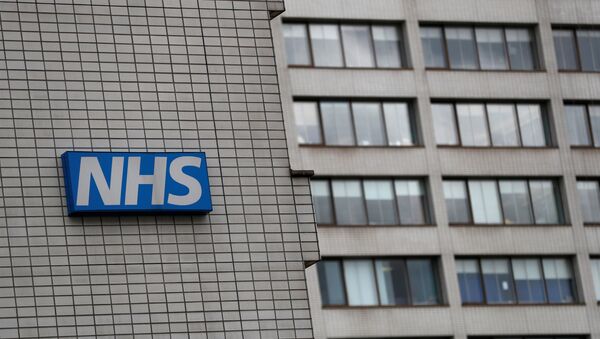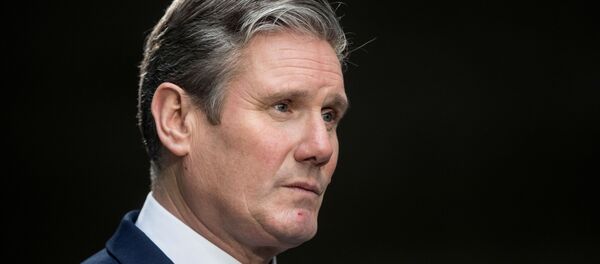‘Protect the NHS’. It’s a phrase we’ve heard ad nauseam in Britain the past few weeks, but has the slogan and the policies underpinning it, actually done more harm than good? The evidence strongly suggests it has. Rather than saving lives, it’s actually claimed them in large numbers.
On 17th March, NHS trusts in England were instructed to ‘free-up the maximum possible in-patient and critical care capacity’. That meant a large scale discharge of ‘all hospital in-patients who are medically fit to leave’ and stopping all ‘non-urgent elective operations’ for at least three months from 15th April at the latest.
How many of these sick patients, rushed out of the hospital to ‘free up’ beds for COVID-19 patients have subsequently died? This could help explain the sharp rise in non-COVID-19 excess deaths in early April.
Patients were discharged back into care and nursing homes even if they had COVID-19. They didn’t need a negative test first to be sent back. Care homes were not allowed to refuse them.
And of course, COVID-19 consequently spread like wildfire round the homes, with deaths there from the virus accelerating by more than twice the rate in hospitals in early April.
The Care Quality Commission (CQC) said that 4,343 people with confirmed, or suspected COVID-19 died in UK care homes between 10-24th April alone. All of this was foreseeable. As Fraser Myers writes in Spiked: ‘The carnage in our care homes was not inevitable. It is a direct product of the monomaniacal focus on locking down at all costs, and on clearing the decks of the NHS for a surge that never arrived.’
Not only have we seen a sharp rise in care home deaths, the government’s exhortation to people not to burden the NHS with non-COVID-19 complaints has also led to people not calling up the doctor’s when they really should be seeking medical advice. I had to briefly go to a health centre earlier this week and it was practically empty, as it was the last time I went in late March.
Dr Karel Sikora, the eminent oncologist, says that usually in April, around 30,000 people would be diagnosed with cancer. He doubts if that number even reached 5000 in April 2020. It’s not just that people have been gaslighted into believing that they are ‘selfish’ in wanting to see a doctor for a non-COVID-19 complaint, it’s the way media and political messaging has made us scared to visit public places.
Covid-19 is dangerous, and needs to be taken seriously, but contrary to the way some have been presenting it, it isn’t the Black Death. It’s far riskier to put off going to see the doctor because you think you might have cancer or a serious heart problem, than it is to go to the surgery and get it all checked out in good time.
Meanwhile, as thousands miss out on the treatment they need because they don’t have Covid-19, (or are too frightened to go into a medical centre), our hospitals are half empty. As Dr Malcolm Kendrick put it in a recent RT.com article:
‘The focus, the entire focus, has been to clear patients out of hospitals, waiting for the deluge of patients. This has been so effective that, in my area of Macclesfield in Cheshire, the local hospitals have never been so empty.
There are wards with no patients in them. The shiny new Nightingale hospital in London, with four thousand beds, apparently had just nineteen patients in it last weekend. Yet still the pressure still comes down: get patients out of hospital and back into care homes.’
The background to the catastrophe is that in November, the number of hospital beds in England fell to its lowest ever level. A total of 17,230 beds were cut from the NHS from the number which existed when the Conservatives (in coalition with the Lib Dems) returned to power in May 2010.
Already in November 2019, before Covid-19 had got its rucksack and hiking boots on, there were concerns that the NHS would struggle with demand in the coming winter.
Having not taken the new Coronavirus very seriously at first, and seemingly content to follow a ‘herd immunity’ approach, in mid-March the authorities changed course and decided to clear the hospitals. The government then introduced a ‘lockdown’, but one which didn’t involve any checks on travellers entering the UK. But why did they clear the hospitals AND impose a lockdown? If they thought a lockdown would work, then all that extra hospital capacity would not be needed. Prime Minister Boris Johnson praised on Thursday the ‘massive collective effort to shield the NHS’, but his claim that 500,000 deaths was a ‘reasonable worst case scenario’ is quite absurd. The report from the team of Professor Neil Ferguson, the epidemiologist at Imperial who Johnson was taking his cue from, said that 510,000 deaths (their highest prediction), was based on the ’unlikely’ assumption that nothing would be done to control the spread of the virus, or that individuals themselves didn’t take any sensible precautions.
In any case Ferguson’s modelling has been criticised by other epidemiologists.
‘Protect the NHS’? In the end the health service became too protected. The Covid-19 pandemic, which was supposed to overwhelm hospitals, overwhelmed care homes instead. Thousands of lives have been lost unnecessarily.
What a tragic irony that those spent their working lives paying for the NHS were unable to use it in their hour of need ( or persuaded not to). A national scandal? Of course it is. But this is Britain- so don’t expect anyone to be held accountable.
Support Neil Clark’s Libel and Legal Enforcement Fund
Follow Neil Clark @NeilClark66 and @MightyMagyar





